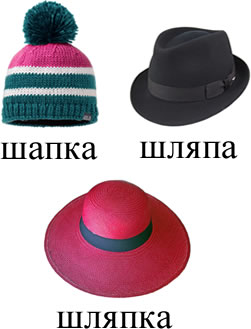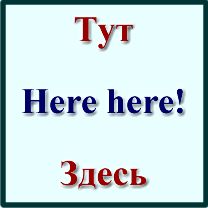
Here’s a recording in a mystery language.
Can you identify the language, and do you know where it’s spoken?

Here’s a recording in a mystery language.
Can you identify the language, and do you know where it’s spoken?
The Polyglot Conference officially started today. There were talks and workshops all day on all sorts of interesting topics. I went to talks on Slovenian, linguistic relavtivity, Romani, the Cathars, and audiolinguistics. They were all interesting, especially the linguistic ones.
There was plenty of time between the talks to talk to other participants, and I managed to make some recordings in quite a variety of languages for the next episode of my podcast. I hope to make more recordings tomorrow.
I had conversations in English, Welsh, French, Irish, German, Russian, Mandarin, Japanese, and tried to speak a few other languages.
They are preparing Ljubljana for the Ljubljana Marathon tomorrow, and quite a few streets are being lined with barriers. I hope I’ll be able to get to the conference venue tomorrow.
After arriving in Ljubljana yesterday I found a bus into the city centre, then walked to the AirBnB I’m staying in, which is more or less in the centre of the old town. It doesn’t look like much from outside – the door is covered in graffiti, and the outside of the building is rather plain, but inside the flat I’m in is very nicely decorated.
Last night I had dinner at a restaurant by the Ljubljanica, the river that flows through Ljubljana. I saw quite a few people I know from previous polyglot events going past, and met some of them afterwards in a tapas restaurant.
So far I’ve spoken a little Slovenian, quite a bit of German, French and Welsh, and odd bits of other languages.
We spent today talking about the best ways to learn languages. This was interesting and there was some useful advice that I might try.
I haven’t had a lot of time to explore the city yet. The centre is quite compact and mostly pedestranised, with lots of interesting and colourful buildings.
This evening there was a concert with songs in many languages, then I went for dinner with quite a few other polyglots.
I’ve been learning Slovenian for nearly three months now, and will have chances to use it when I go to Slovenia in a few days. I’ll be there for the Polyglot Conference.
While I can’t say a lot in Slovenian yet, I have at least learnt the basics. I’ve been using a Memrise course based on Slovenian for Travelers, another version of which is available here.
As I’ve studied other Slavic languages to varying degrees – Russian, Czech, Slovak and Serbian – I can recognise quite a few words in Slovenian, and the grammar seems similar. I like the sound of Slovenian, and may continue learning it after the conference.
My favourite Slovenian words are currently: predvčerajšnjim (the day before yesterday) and pojutrišnjem (the day after tomorrow).
I plan to record an episode of the Radio Omniglot Podcast at the conference. It will be about the conference, and the people there, and will hopefully include recordings of participants speaking as many different languages as possible. Looking forward to it!

Here’s a recording in a mystery language.
Can you identify the language, and do you know where it’s spoken?

A Memrise Russian lesson I’ve been working on this week includes two different words for hat: шапка (shapka), which is translated as ‘hat (to keep you warm)’ and шляпа (shlyapa), which is defined as ‘a hat (for style)’.
Шапка comes ultimately from the Old French chape (cape) [source].
Шляпа comes from the Old East Slavic шляпа (šljapa – hat, milksop, difficult situation), from Bavarian German Schlappe (defeat, flop, slap) [source].
When you search for шапка in Google Images, you mainly get pictures of knitted woollen hats, like the bobble hat in the image, plus a few fur hats.
When you do the same for шляпа you get mainly men’s hats, like the fedora in the image.
Another word for hat in Russian is шляпка (shlyapka), which seems to refer to a variety of quite elaborate women’s hats, like in the image. It is a diminutive of шляпа.
I like these words because they’re fun to say.
Are there other words for hat in Russian?

There seem to be different ways to say here in Russian. In some contexts you use тут (tut), and in others здесь (zdyes’), or another word. I’m not sure when to use each one, so I thought I’d investigate.
Тут means here, then, at this point, and other things in some phrases [source]. For example:
Тут comes from Old East Slavic тутъ (tutŭ – here; thereto; herewith), from ту (tu – there; thereto; then; here, herewith), from Proto-Slavic *tuto/*tu (there, here) [source].
Здесь means here or therein [source]. For example:
Здесь comes from the Proto-Slavic *sьde (here, in this place) [source].
Сюда means here or therein [source]. For example:
Сюда comes from the Proto-Slavic *sǫda [source].
Отсюда means from here, hence [source]. For example:
Вот means here (is) [source]. For example:
According to Reverso, здесь refers to location, сюда refers to destination, отсюда refers to departure point (from here), and тут means at this point or in the past.
Do other languages have several ways to express the idea of here?

Here’s a recording in a mystery language.
Can you identify the language, and do you know where it’s spoken?

I’ve noticed that there are several ways to say now in Russian. In some contexts you use сейчас (sejchas), and in others теперь (teper’), but I haven’t worked out when to use each one yet. So I thought I’d investigate.
Сейчас means now, just now or (only) just [source]. For example:
Сейчас comes from сей (this) & час (hour, o’clock, time, time of day) [source].
Сей also appears in сегодня (sevódnja — today).
Часы (chasy) = watch or clock.
Теперь means now or nowadays [source]. For example:
From these examples, I’m guessing that сейчас is more immediate than теперь. Is that right?
There are other ways to say now in Russian it seems:
Теперь comes from the Old East Slavic топере (topere), and is apparently used in contrast with the past [source].
Welsh also has several words for now [source]:
Do other languages have several ways to express the idea of now?
Так, пока всё, пока пока (So that’s all for now, bye bye)
A useful phrase that came up in my Swedish lessons on Memrise this week is Jag är lite förvirrad, which means “I’m a little confused”. This is quite a useful phase when you’re learning a new language, or trying to make sense of a new place, country or custom.
Another phrase that came up is Vi har gått vilse, which means “We’re lost” or literally “We have gone/walked astray”.
Förvirrad means confused, perplexed, addled, addlepated, bewildered, bumbling, chaotic, crazed, discombobulated, distracted, disturbed, dizzy, flighty, muddled, befuddled, diffuse, according to bab.la.
Here are a few examples of how it’s used:
Related words include:
förvirra comes from the Middle Low German vorwerren [source], which is also the root of verwirren (to confuse) in German and verwarren (to tangle, confuse, confound, befuddle) in Dutch.
The ver- and -en are affixes. The warr/wirr/werr part comes from Middle Dutch werre/warre (confusion, disarray, conflict), from Old Dutch *werra, from Proto-Germanic *werrō (confusion, disarray, conflict, strife), from the Proto-Indo-European *wers- (to grind, sand, sharpen, hone). The English war comes from the same root [source].
Vilse means lost, astray, wrong, according to bab.la.
Related words include:
Vilse comes from vill (lost), from Old Norse villr (wild), from Proto-Germanic *wilþijaz (wild), from Proto-Indo-European *wel-/*welw- (hair, wool, grass, ear (of corn), forest), which is also the root of the English word wild [source].